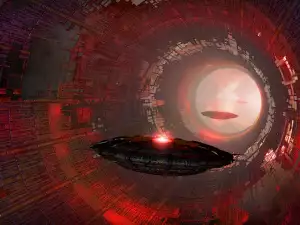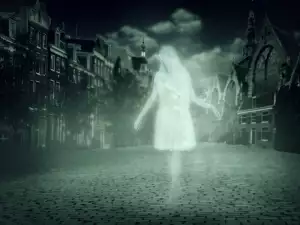Scientists from Cambridge believe that hallucinations, which are characteristic of psychological disorders, might actually be a natural reaction by the brain. Using it, the brain tries to give meaning to its surrounding world.
That which makes us productive and capable individuals is the presence of a predictive brain and the ability to form a clear picture from a contradictory and complex world. This allows us, for example, to recognize the rapidly jumping ball of hair down the road as a rabbit, even though its image is still blurry.
According to experts, sounds and especially images that do not exist at a given point in time, can be generated by the brain. This way the brain fills in the gaps it perceives in reality and predicts a possible way out of a situation. That's exactly what hallucinations are - our consciousness perceives and visualizes things which aren't actually there.
The scientists from Cambridge along with their colleagues from Cardiff University have carried out an interesting experiment. They showed black and white images, which appeared to be nothing more than a random assortment of lines and spots, to the volunteers.
The goal was to determine whether people with psychotic tendencies would do a better job of filling in the missing parts of the picture. At the end of the experiment, the participants were given the opportunity to look at the full-color originals.

The results were beyond fascinating. Individuals with early signs of psychosis did significantly better than completely healthy individuals. There was a subsequent experiment in which 40 people, having a tendency toward psychosis in varying degrees, participated.
It turned out that the potential deviation in the information processing mechanism was fact. As the condition worsens, the brain begins to perceive the output data as more important than the new data received from the sensory organs. This is an exceptionally useful find which will make it easier to treat this condition.
The scientists' conclusion is that hallucinations are not symptoms of a damaged brain. In fact, quite the opposite - this is the most natural way of rationalizing ambiguous data that we receive from the surrounding environment.









